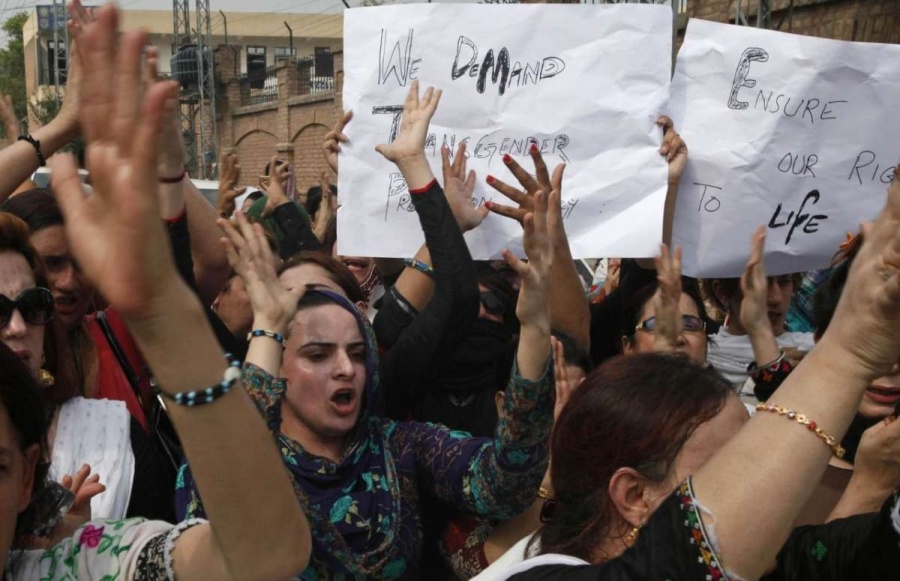The ongoing protests in Sarfaranga are just one facet of the widespread discontent brewing in PoGB. Across the region, citizens are rising up against what they perceive as systemic injustice and government repression, writes Dr Sakariya Kareem
In the remote region of Pakistan-occupied Gilgit-Baltistan (PoGB), a wave of protests has gripped the Shigar district, exposing deep-seated frustrations with government policies and a lack of autonomy. For over two weeks, residents have staged a sit-in protest against a controversial court ruling that declared the Sarfaranga Cold Desert as state land, stripping local communities of their ancestral rights and livelihoods. The protests, which entered their 14th day on October 3, have drawn support from across PoGB, with men, women, and even schoolchildren joining the demonstrations. The unrest stems from a September 19 verdict by the Chief Court, which ruled that thousands of kanals of land in Sarfaranga – home to the world’s highest cold desert – are “khalisa sarkar” or state property. This decision has reignited long-standing disputes over land ownership between local residents, including emigrants from the 1947 and 1971 wars, and the provincial government.
The situation took a turn for the worse when the district administration deployed a large police force to enforce the court’s decision. On September 23, tensions escalated as authorities demolished structures built by local residents on the disputed land, further fueling anger and resentment among the populace. The Cold Desert dispute is emblematic of the broader historical and socio-economic challenges faced by Gilgit-Baltistan. The region’s complex history began when it was forcibly incorporated into the Kashmir dispute following Pakistan’s illegal occupation of part of Jammu and Kashmir in 1947. Since then, the people of PoGB have endured decades of political limbo, denied full constitutional rights and representation within Pakistan’s federal structure.
In 1949, without the consent of the local population, Gilgit-Baltistan was integrated into the Kashmir issue by the Pakistani government. From the outset, residents were deemed incapable of governing their own affairs, and the region was administered under the draconian Frontier Crimes Regulation (FCR) until the early 1970s. Despite the abolition of the FCR, the region continues to suffer from neglect, underdevelopment, and a lack of basic rights.
The ongoing protests in Sarfaranga are just one facet of the widespread discontent brewing in PoGB. Across the region, citizens are rising up against what they perceive as systemic injustice and government repression. In recent weeks, demonstrations have erupted over arbitrary arrests of political activists, baseless terrorism charges against locals, and inadequate healthcare facilities. In Gilgit, youth and members of the Awami Action Committee recently rallied outside the Central Press Club to demand the release of prominent youth activist Wazir Hasnain Raza and other political leaders detained in the region. Raza’s arrest has sparked outrage, with his family reporting being denied access to him since his detention. This incident has highlighted the government’s growing intolerance for political dissent and its use of intimidation tactics to silence opposition voices.

The crackdown on political dissent is accompanied by other pressing issues plaguing the region. In Chilas market, protesters recently voiced their anger over what they claim are baseless terrorism charges filed against local residents. The demonstrators accused the administration of using anti-terrorism laws to suppress legitimate political activism and demanded government intervention to release those unjustly imprisoned. Education, a crucial pathway for development and empowerment, has also become a flashpoint for controversy in PoGB. Students at Karakoram International University have taken to the streets to protest against fee hikes and administrative mismanagement. Despite previous agreements to gradually reduce fees, students claim that costs have suddenly increased by 20 to 25 percent. The protests turned violent when police allegedly used force against demonstrators who were simply trying to inquire about the situation.
The incident has raised questions about the priorities of the authorities and their commitment to fostering education in the region. The challenges facing PoGB extend beyond political and educational spheres to basic healthcare services. In the remote village of Raminji in Gojal Valley, residents recently protested the lack of health facilities in their area. The local dispensary, crucial for providing basic medical care, maternal services, and emergency treatment, has been left without staff since August 18. This neglect has forced retired health workers to step in, highlighting the severe shortage of medical professionals and resources in the region.
The ongoing unrest in Pakistan-occupied Gilgit-Baltistan reveals a region in crisis, grappling with a multitude of challenges that stem from decades of neglect, political manipulation, and suppression of local rights. From land disputes and political repression to inadequate education and healthcare services, the people of PoGB find themselves caught in a struggle for basic dignity and autonomy. As protests continue to erupt across the region, it is clear that the current state of affairs is untenable. The authorities’ heavy-handed responses and failure to address the root causes of discontent only serve to deepen the rift between the government and the people it claims to serve. Without significant changes in policy and a genuine commitment to addressing the grievances of PoGB’s residents, the region risks sliding further into instability and unrest.
The situation in PoGB serves as a reminder of the human cost of unresolved territorial disputes and the dangers of denying people their fundamental rights to self-governance and economic development. As the world watches, the voices of Gilgit-Baltistan’s people grow louder, demanding justice, representation, and a future free from the shackles of political limbo and systemic neglect.
ALSO READ: Pakistan: Home to fake degree scams









